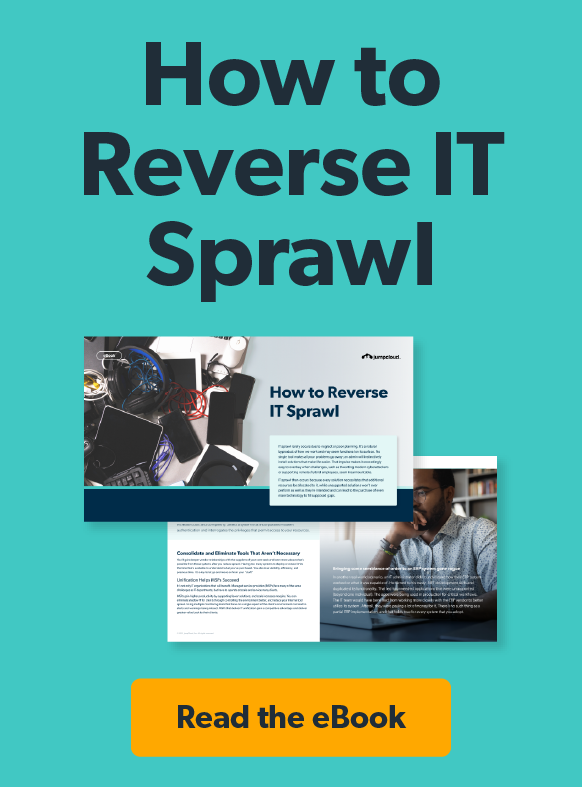With the many free open-source tools and apps available today, you’re likely wondering if there is a free identity provider (IdP) available as well. There are a number of legacy, open-source directory services solutions available, but implementation and management require a great deal of time from skilled technical IT staff, plus the hardware you run these solutions on isn’t free. Wouldn’t you rather have your highly skilled technical staff focused on higher priority tasks, like enabling your team to be more productive, building internal systems, and developing core applications to run the business that generate revenue? And wouldn’t it be great if somebody else handled the hardware, hosting, security, and maintenance as well?
If this sounds like your desired situation, then you should consider a solution from a new generation of cloud-hosted identity providers, also known as cloud directory services. These IAM (identity and access management) solutions are delivered under a SaaS model and often provide a free tier for smaller organizations. While they are technically not free identity providers for larger organizations, these solutions have a unique pay-as-you-go model and can ultimately be far more cost effective than so-called free solutions leveraging open-source, which are not truly free either.
Let’s explore how legacy identity providers package their product and why many modern IT organizations pursue alternative IdP solutions.
Smart Bundling Created the Façade of a Free Identity Provider
Historically, IT organizations simply leveraged Microsoft® Active Directory® (AD) as their identity provider. This made a great deal of sense for a time because the IT infrastructure was virtually all Microsoft Windows®-based in most organizations. Also, Microsoft made it seem like AD was free. IT organizations needed to purchase everything they needed for Windows Server® licenses anyway (server license, CALs, etc.), so brilliantly, AD was delivered as a “free” module of Windows Server.
Thus, Active Directory seemed free to organizations that already needed Windows Server licenses for their whole organization. For others, the need for AD became a driver to purchase Windows Server licenses for the entire staff and they received other benefits of using Windows Server as a byproduct. Either way, it was a smart move by Microsoft to protect their market share and it normalized the expectation of a free identity provider. Microsoft plays some of the same bundling tricks with Azure Active Directory (for example, the E5 license bundles things like Office, AAD, Intune, and more), which isn’t a replacement for AD, but a cloud-based identity management system, nonetheless.
Fast forward to modern times, and IT organizations are looking for similarly cost-effective approaches. However, the IT landscape has changed dramatically since the dominance of Microsoft-driven, on-prem infrastructure. IT environments are no longer entirely Windows-based. They are now mixed platform environments with productivity suites and cloud services from a whole host of providers. More often than not, there isn’t a Windows Server license to be found, nor is there a need to purchase one. In today’s Domainless Enterprise world, the choice of an identity provider ends up costing an organization money. In fact, many organizations are realizing that the center of their IT environment is no longer the device but rather the identity, and the identity provider may, arguably, be the most critical piece of IT infrastructure.
The True Cost of “Free” Open-Source IdPs
As mentioned at the start of this article, open-source, free identity providers do exist. Examples include OpenLDAP™, RedHat Directory Server (Directory 389), FreeIPA, and many others. However, despite the lack of upfront costs, these IdPs still require major resource expenditure in the long run. They require additional time and effort to implement and maintain, and usually must be administered by experienced technical staff.
For example, OpenLDAP often must be managed by someone with an engineering background or strong technical skills. Additionally, all of these software solutions require hardware to run on, as well as hosting services, backup, load balancing/high availability solutions, and security, among other infrastructure management capabilities. Although the software is free, there are additional costs to be considered in the implementation, management, and maintenance of open-source identity providers.
Fortunately, there is a new generation of cost-effective cloud identity management that allows you to pay for what you need as you scale your organization.
JumpCloud: A Cost-Effective Identity Provider
For one set monthly or annual price, you can leverage a modern and secure cloud-based identity provider that empowers you to use the IT resources that work best for your organization. Regardless of how many users you have, or whether finding an identity provider is your sole use case, you can get full access to the entire platform and pay for whatever package is right for you.
You’ll be able to manage user access to Windows, Mac®, and Linux® devices, LDAP and SAML based applications, cloud storage solutions (DropBox™, Box™), on-premises file servers (Samba file servers, NAS appliances like those from Synology and QNAP), and wired and WiFi networks using JumpCloud Cloud RADIUS. The ability to centralize your directory data and analyze events (Identity Governance and Administration) via Directory Insights™ is also included in your free account.
Find Out More
Although JumpCloud’s cloud directory service is not an entirely free identity provider, we do offer a free trial that you can sign up for to check out the full platform functionality for yourself.





